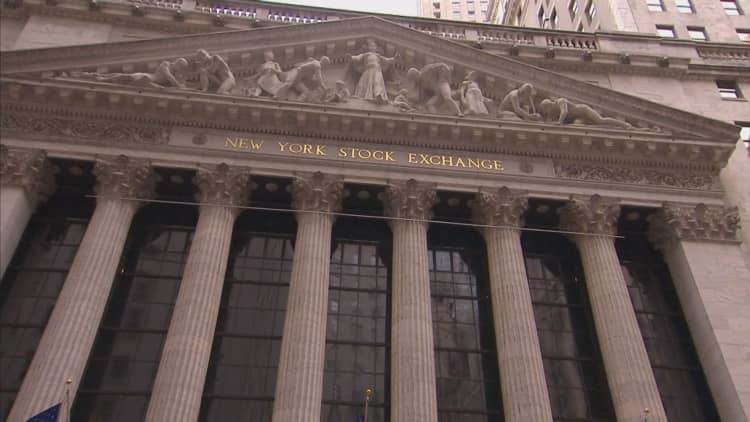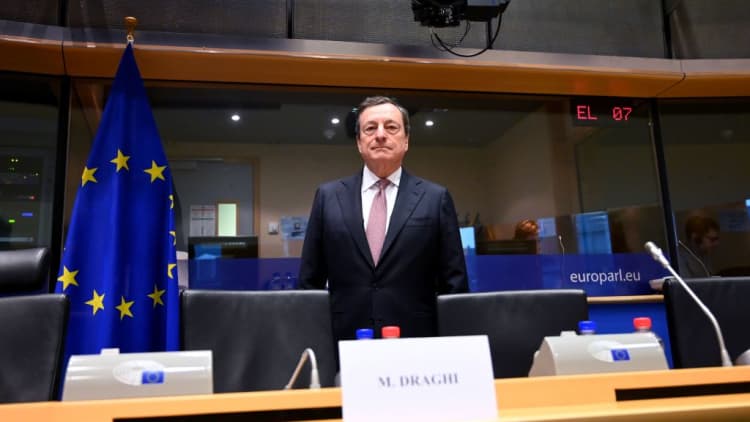
Stocks fell on Thursday after the European Central Bank slashed its economic growth forecast for 2019 and announced a new round of stimulus to help banks in the region, stoking worries over the global economy.
The Dow Jones Industrial Average closed 200.23 points lower at 25,473.23 as shares of Caterpillar and Walgreens Boots Alliance lagged. The fell 0.8 percent to 2,748.93, led by declines in the financials and consumer discretionary sectors. The Nasdaq Composite dropped 1.1 percent to 7,421.46. The indexes posted their fourth consecutive loss.
Bank of America, Goldman Sachs, Morgan Stanley and Citigroup all fell around 1 percent. The SPDR S&P Bank ETF (KBE) dropped 1.6 percent.
ECB President Mario Draghi said the central bank cut its growth estimate to 1.1 percent, down from a 1.7 percent expansion forecast released in December.
The ECB also said its new targeted longer-term refinancing operations (TLTRO-III) stimulus program will start in September and run through March 2021. TLTROs are loans provided by the ECB to European banks at a low rate, making it easier for them to lend money to consumers, which in turn can help stimulate the economy. This is the third stimulus injection from the ECB since 2014.
"They're basically admitting the economy is quite soft," said Peter Cardillo, chief market economist at Spartan Capital Securities. "This adds to one thing: uncertainty."
The ECB's announcements come amid lingering concerns over a possible economic slowdown across the globe. The Bank of Canada said Wednesday there was "increased uncertainty" around future rate hikes, while Australia's fourth-quarter GDP expanded at a pace of just 0.2 percent. In the U.S., meanwhile, the Federal Reserve has already signaled it will be "patient" in raising rates.

The dollar surged against a basket of currencies, trading 0.85 percent higher at 97.70. Against the euro, the greenback traded 1.1 percent higher at $1.1181.
Treasury yields fell, with the 10-year note rate sliding to 2.63 percent while the 2-year yield dipped to 2.47 percent.
Thursday's moves come after the major indexes fell in the previous session, with investors eager to know details from trade negotiations between the U.S. and China.
Data out on Wednesday showed that the U.S. trade deficit remains a problem. President Donald Trump has imposed a series of tariffs on countries like China, in an attempt to bring down his country's trade deficit. However, Wednesday's data showed that trade deficit in the U.S. hit a 10-year high in December.
Stocks are still up sharply for the year despite Thursday's losses. The S&P 500 and Dow are both up more than 9 percent this year while the Nasdaq has risen about 11.9 percent.
Tim Courtney, chief investment officer at Exencial Wealth Advisors, said progress in U.S.-China trade talks along with the Fed signaling a more patient approach to rate hikes boosted stocks to start off the year. But "the market is sort of waiting to get more data on global growth. That's the third thing hanging out there and it's going to be the arbiter for the market moving forward."
—CNBC's Silvia Amaro contributed to this report.


